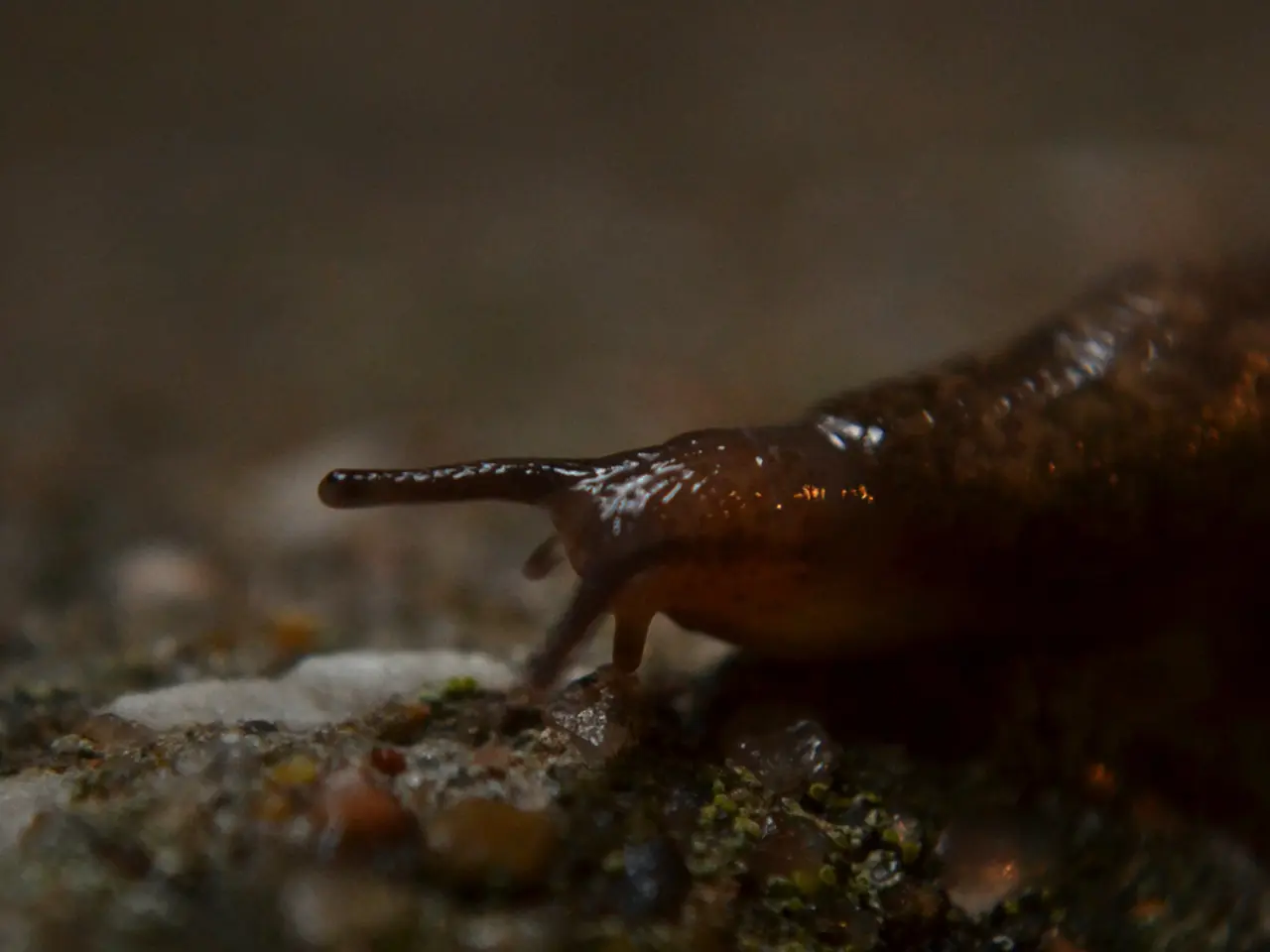Methods to Eliminate Them Without Using Chemicals Revealed
In the quest to maintain a thriving vegetable patch or herb garden in raised beds, snails can pose a significant challenge. However, fear not! This article presents a range of effective, non-chemical methods to keep those slimy pests at bay.
Physical Barriers
One of the simplest solutions is to employ physical barriers. Copper tape or mesh, when applied around the edges of raised beds, pots, or trays, provides a mild electric shock to snails and slugs, deterring them from climbing in. To ensure maximum effectiveness, ensure the copper is clean and maintained, preventing any potential gaps that snails could exploit.
Another option is the use of angled fences made from galvanized metal or copper. Known as snail fences, these barriers have an inward bend, making it difficult for snails to climb over, effectively protecting the plants inside.
Rough materials, such as crushed eggshells, seashells, or oyster shells, spread around plants, create a sharp, uncomfortable surface that snails avoid. These materials also add nutrients to the soil and improve drainage.
Habitat Modification
Board traps, made by placing wooden boards, slates, or upturned flower pots near garden beds before dusk, can be an effective method for snail control. By checking under them in the morning, gardeners can easily remove the hiding snails. This method localizes and simplifies snail collection.
Removing hiding spots, such as debris, stones, and dense plant material near raised beds, can help eliminate daytime hiding places for snails.
Natural Predators
Encouraging natural predators like birds (such as robins and thrushes), ground beetles, frogs, and toads, can help control snail populations. By providing shelter, water sources, and a diverse garden environment, these beneficial creatures can be attracted to your garden.
Traps and Removal
Beer traps, consisting of small containers filled with beer at soil level near affected plants, attract snails, who then drown in the liquid. However, it's important to note that beer traps are not the most animal-friendly method, as they can attract snails that would not otherwise climb into the raised bed.
Handpicking snails, especially after rain or during damp evenings, can be an effective method in small gardens. Simply drop the collected snails into soapy water to eliminate them.
Natural Repellents
Diatomaceous earth, a powder made from fossilized remains of aquatic organisms, damages the soft bodies of snails, causing dehydration. To use this powder, simply sprinkle it around plants. However, it loses effectiveness when wet, so be sure to reapply after rain or watering.
Wool pellets can deter slugs and snails by forming a rough, uncomfortable barrier. While they break down quickly in wet conditions, they can still provide temporary protection for your plants.
Mediterranean herbs like sage, rosemary, or thyme, when planted at the edge of a raised bed, are said to repel snails.
Preventive measures should be taken to drive snails out of raised beds. Offering natural shelters and avoiding pesticides in the garden can preserve beneficial creatures that eat snails and their eggs. Creating a natural habitat for beneficial animals like hedgehogs, toads, and birds can help control snail populations in the garden.
When all else fails, snail bait should be used as a last resort, as it can be harmful to pets and other garden inhabitants. Salt should also be avoided as a home remedy for snails, as it is considered cruel and causes a slow and painful death.
For more tips on dealing with snails in raised beds, refer to the "Natural Garden" guide section. With these methods in combination, gardeners can protect their raised beds from snail damage without chemical intervention.
When arranging a garden, incorporating Mediterranean herbs like sage, rosemary, or thyme at the edge of the raised beds could potentially act as a natural deterrent for snails. Additionally, by employing physical barriers such as copper tape or mesh around the garden beds, pots, or trays, a minor electric shock can be created, deterring snails and slugs from entering.




